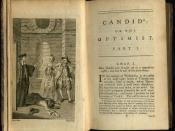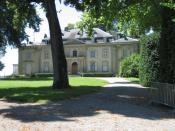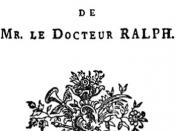Out of severe poverty, oppressive monarchies, and religious persecution came a radical philosophical revolution known as The Enlightenment. This Age of Reason swept through Europe, offering differing views on science, religion, and politics. France was particularly affected by the ideas produced during the Enlightenment, by means of many great philosophers, such as Rousseau, Descartes, and Voltaire. Voltaire wrote one of the most influential and renowned novels during this period, that challenged not only political paradigm, but social institutions as well. In the novel "Candide", the famous French philosopher of the Enlightenment era, Voltaire, expresses his views about society and the belief that the separation of class, hypocrisy of organized religion, rampant materialism, lack of Free Will, and deficiency of compassion for others, all contributed to the lack of human liberty in the eighteenth century.
Throughout history there has always been a separation of the classes in almost all societies, and during the seventeen hundreds people began to protest and even rebel against the idea of nobility and aristocracy.
Voltaire alludes to the negative aspects of class separation and has it negatively affect Candide throughout the novel. In his early childhood Candide is troubled by not being born a privileged noble. Voltaire citing that '"'He decided that the height of good fortune was to have been born Baron Thunder-ten-Tronckh'"' showing Candide"'"s aspirations to become socially elevated (20). The most prominent example of social classes is the relationship between Candide and Cunegonde; throughout the book Candide is chastised for loving Cunegonde. The reaction of Cunegonde"'"s brother, when Candide suggests marriage, is that of offense and a feeling that the union of the two would be a transgression. The young Baron scolding, '"'you have the impudence to think of marrying my sister, who has seventy-two quarterings in her coat of arms, and...


